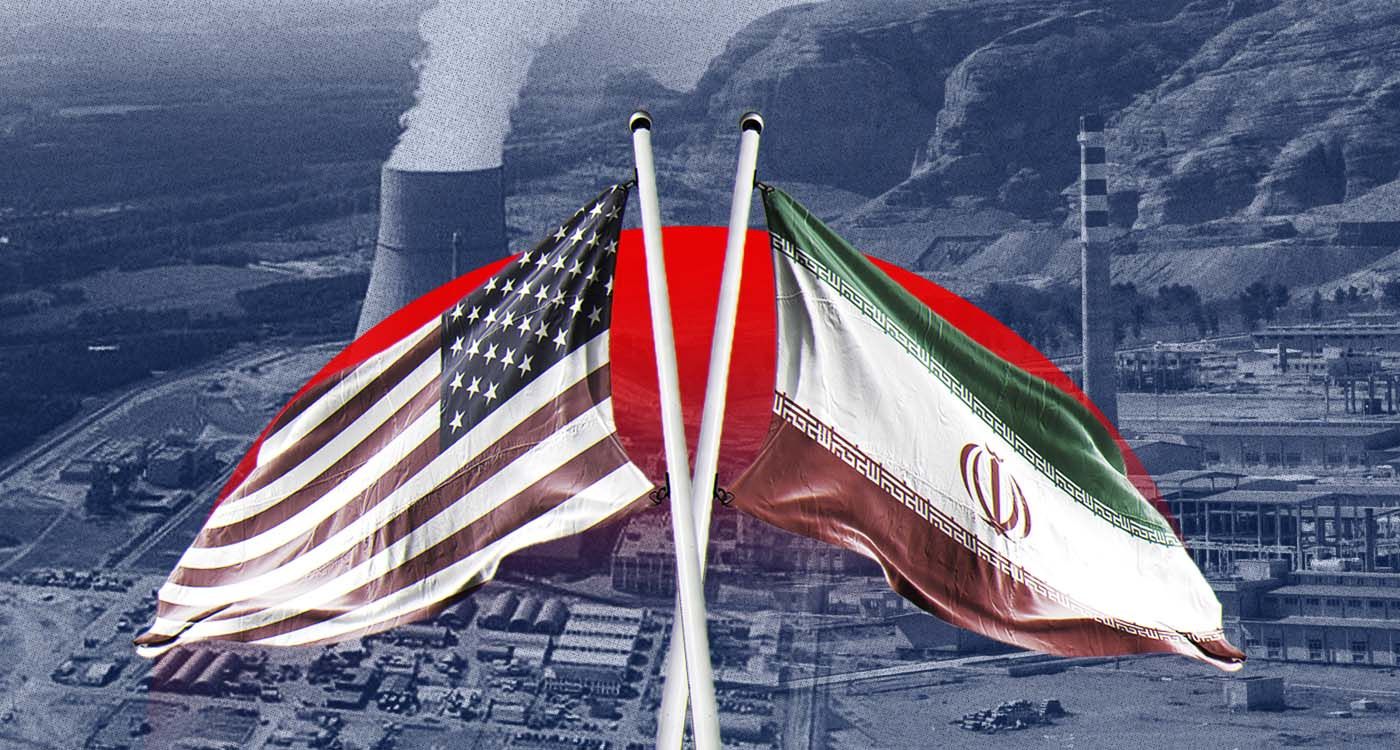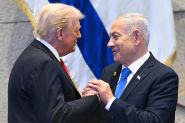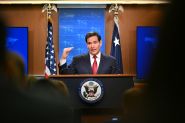- Home
- Middle East
- Divided Views on Iran Within Trump’s Administration: Compromise vs. Hardline

©This is Beirut
The United States is preparing to engage in a new round of negotiations with Iran regarding its nuclear program, adopting a more rigorous approach. The US now demands the complete elimination of uranium enrichment beyond what is necessary for electricity generation, as well as verification of Iran's missile capabilities. This complicates diplomatic efforts and raises concerns about possible military actions if negotiations fail, contrasting sharply with earlier statements suggesting that some civilian enrichment might be permissible.
Oman rejoins as a mediator as both nations gear up for talks in Rome this weekend. US Special Envoy Steve Witkoff has reiterated that any agreement must thoroughly curtail Iran's nuclear enrichment and weaponization activities. These discussions take place against a backdrop of heightened tensions, intensified by US threats of potential airstrikes should a deal not materialize.
Beyond the Nuclear Pact
Following the US withdrawal from the 2018 nuclear agreement, Iran has significantly accelerated its uranium enrichment and decreased its cooperation with the International Atomic Energy Agency (IAEA). In a recent op-ed for the Wall Street Journal, former Secretary of State John Kerry argued that President Trump has a pivotal opportunity to establish a comprehensive agreement with Iran that could enhance global security. He advocates for a framework that extends beyond a mere nuclear pact, calling for strict controls on Iran's nuclear and ballistic missile programs and addressing its support for terrorism.
Despite the potential for an agreement, profound distrust remains on both sides. Trump has the chance to strengthen his reputation as a peacemaker, while Iran seeks to stabilize its economy amid rising domestic unrest.
Rome Essentials
Crucial factors for the upcoming discussions in Rome include avoiding conflict and ensuring direct negotiations despite Iran's reservations. Experts highlight that the US must sidestep a "Libya model" while promoting a transparent negotiation process. However, divisions are evident within the Trump administration regarding the approach to Iran's nuclear ambitions. A faction led by US Vice President J.D. Vance advocates for compromises, cautioning against the risks that military strikes pose to "US troops and fragile oil markets." In contrast, a hardline group, spearheaded by National Security Advisor Mike Waltz and Secretary of State Marco Rubio, demands the complete dismantlement of Iran's nuclear capabilities.
'Trump Deal'
Tensions are still high, especially with Israeli Prime Minister Benjamin Netanyahu, who advocates for a stronger approach towards Iran. Netanyahu's recent visit to the White House highlighted the differing viewpoints he and Trump hold regarding military intervention.
Trump has made it clear that preventing Iran from acquiring nuclear weapons is a priority, and he is willing to engage in both direct and indirect talks. However, he stresses that these discussions can't drag on indefinitely. His national security team is aligned with the goal of promoting peace in the Middle East while strengthening US security. Witkoff stresses that any deal with Iran must ultimately be framed as a "Trump deal," necessitating the complete elimination of Iran's nuclear enrichment and weaponization efforts. He underscores the importance of creating a durable framework for peace, stability and prosperity in the region.
Shifting US Policy
Notably, the pivot in US policy signifies a desire to achieve more than merely restoring the 2015 nuclear deal (JCPOA) from which President Trump withdrew in 2018. Since that time, Trump has reinstated extensive sanctions under a "maximum pressure" strategy and has issued warnings of military action if Iran edges closer to developing a nuclear weapon, despite Iranian claims that their nuclear program is peaceful and assertions of compliance with the JCPOA prior to the US exit.
Diverging Strategies on Iran
Senator Lindsey Graham echoes Witkoff's position on X, stating that Iran must possess no nuclear enrichment capability to avert the creation of nuclear weapons. Similarly, House Representative Mike Lawler voices concern over any potential agreement that fails to dismantle Iran's nuclear program entirely, emphasizing the necessity for tough and strict measures.
Journalist Hussain Abdul-Hussain outlined on X two contrasting approaches to dealing with Iran: the Obama-era strategy that allows limited enrichment under stringent monitoring and the Trump framework from 2018 that demands an outright halt to all enrichment, emphasizing that within Trump's team, disagreements persist over whether continued enrichment with restrictions might be acceptable versus the hardline demand for the complete dismantlement of the Iranian nuclear program.
Read more





Comments